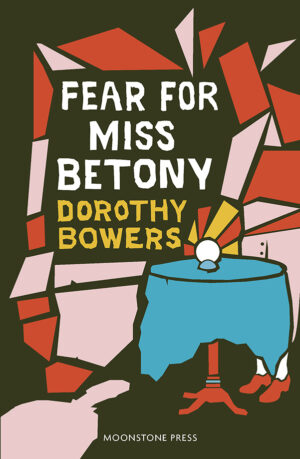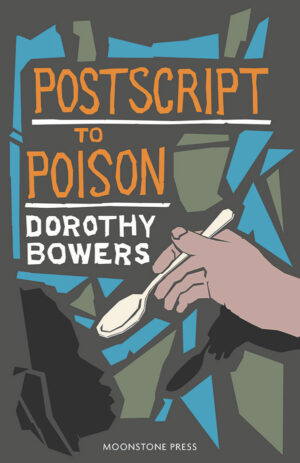Shadows Before
“It won’t be much longer now. Keep your head and hold your tongue.”
In Shadows Before, events from the past are the catalyst for murder. In hope of a fresh start after being acquitted of the murder of his sister-in-law, Matthew Weir has moved his family to Spanwater, a remote manor in the Cotswolds. But his heiress wife Catherine is traumatised by her sister’s death and Matthew’s trial, and has retreated into childhood memories, believing she is living in the Welsh border cottage of her childhood. Hired to keep Catherine safe in her wanderings, companion Aurelia Brett is fleeing poverty and hunger in London, Matthew’s brother Augustus is trying to elude past debts. His nephew is haunted by the death of his father. Then Catherine dies suddenly, and arsenic is found in her home-made tea. Evidence suggests someone in the house, but Chief Inspector Pardoe finds conflicting clues and suspicious behaviour among Spanwater’s neighbours too. When a second death occurs, Pardoe – and the reader – must decide which shadows points to the perpetrator and why.
Dorothy Bowers (1902 – 1948) was a champion of “fair play” mysteries, in which all the clues are cunningly displayed within the context of the story.
£9.99
By Dorothy Bowers
First published in 1939 by Hodder & Stoughton
Paperback
286pp
ISBN 9781899000104
Table of Contents
Introduction
PROLOGUE Shadows
PART I Coming Events
I Situation Vacant
II Arrivals
III Encounter
IV Steeple Cloudy to the World
PART II Herb Tea
V The Weir Case
VI Scotland Yard to Steeple Cloudy
VII The Husband
VIII The Servants
IX The Companion
X The Doctor
XI Somewhat Bellicose
XII Friends and Relations
XIII Design for an Accident
XIV Titt’s Cote
PART III Light
XV Cloudy Sabbath
XVI Again Poison
XVII Pie Wood
XVIII The Truth
XIX The Whole Truth
EPILOGUE Nothing But The Truth
1 review for Shadows Before
Only logged in customers who have purchased this product may leave a review.
Five months after the death of her employer Aurelia Brett walked up from Cottlebury station in search of Dr. Smollett’s house. It was an afternoon late in March, cold and windless, with a special purity in the air that must, she thought, betoken another fall of snow. Crusts of an earlier one still lingered on the hills, as she had seen from the train, waiting for more, as the country folk said. She crossed the wide handsome promenade, glancing up and down its almost deserted length where the chestnuts and limes were uncurling their first leaves, and went briskly past the succession of glittering shopfronts that extended their lures with impeccable taste. They were not for her, and she had schooled herself to disregard what was out of reach, a discipline that simplified life and fortified singleness of aim. But what she could not avoid glimpsing was the repetition of her own image in the polished glass, pale, anxious, resolute, keeping pace with her up the street with a shadowy relentlessness that made her uneasy, she could not have said why.
Directions in the letter she had received were so clear that there was no difficulty in finding the house. Across a main thoroughfare that was the business centre of the town, and down a narrow entry that widened all at once into an old churchyard planted with pollard ash where three railed paths ran in the form of an arrowhead, the Norman church between two of them, Aurelia hurried, taking the middle walk and coming out into a small close framed in houses that seemed to have shrunk a little into their own respectability. The doctor’s was on the corner, facing two ways, brighter than the rest, green-shuttered and with well-scrubbed steps.
When she had rung the bell she found that her hands were trembling. She got the impression that a curtain at a bay window close at hand was flicked aside for a moment, but when she looked there was nobody there. The door opened noiselessly, and a maid who looked at her with impersonal interest brought her into a light square hall and thence to a room on the left that was plainly a study.
“The doctor will be with you in a few minutes, miss,” she said, and withdrew.
The room was at the back of the house, lined with books that were both used and cared for. Aurelia did not sit down but walked past the closely stacked shelves to the window that looked on a tiny walled garden, so carefully ordered it appeared far larger than it was. Her eyes travelled unseeingly from clumps of daffodils shining in dim corners to the first radiant flowers of an almond tree against the end wall. The only sounds behind her were the ticking of a clock and the sly whisper of the coal fire.
She sighed, tapping her foot restlessly, deliberately checking the forward movement of her thoughts that were ready, she knew, to sap her resolution at the first wavering. She had always hated an interim, none the less because experience had again and again forced upon her these periods of suspended action. Opening her bag she took from it the mirror and surveyed herself dispassionately. If her new, carefully chosen clothes did their best to camouflage poverty and gave her an appearance that went far to hide the importance she attached to this interview, the face that looked back at her was not reassuring. She wondered if she had judged wisely in employing neither powder nor rouge today, then decided that their use would only have emphasized the high bones and hollows of her cheeks. But the faintly bruised flesh beneath her eyes startled her in the wan light. It was, she thought, like the dark cavities in a skull, and gave to her look a sort of desperation she would rather be rid of. Her thick shingled hair drawn smoothly back behind her ears was oddly placid by contrast. Funny how yellow and halo-ish it always looked when her face was colourless. She smiled grimly at the angelic allusion that went so ill with her hungry features, and putting the mirror away shut the bag with a snap as the door opened to admit Dr. Smollett.
He came forward quickly with a cordial greeting and pushed a low chair closer to the fire. “Forgive me for keeping you waiting, Miss Brett. Please sit down.”
He was a small man with pale, dry features and deft movements that achieved their purpose without fuss. Beneath thick sandy brows his eyes moved restlessly. He seated himself opposite Aurelia but got up immediately, and going over to his desk took from it a letter and some papers attached. He stood on the hearth rug between the two chairs and tapped the papers lightly with his finger.
“The letter you wrote Mr. Weir was admirably to the point,” he said abruptly.
A short silence closed on his remark and Aurelia wondered if she was expected to reply. Glancing up she intercepted a curious look. Without turning his head the doctor, who held himself perfectly still, was watching her shrewdly. The bright, keen regard from the corners of his eyes gave him a crafty mien. When it met hers the look, with the taut bearing, vanished, and turning he sat down again facing her.
“You understand,” he resumed in a normally brisk voice, “that I am acting for Mr. Weir in this matter. He has asked me, as Mrs. Weir’s doctor, to see any suitable applicant for the post. So your letters and testimonials were passed on to me. They seem very satisfactory, but I had better hear a little more about your late post—you’ve not been too informative.”
He smiled as he spoke. Aurelia flushed.
“I wrote shortly, I know. Nowadays I’ve cut down my application to the mere essentials. The fact is,” she went on more bluntly, “I’ve found that after mentioning my lack of qualification as a nurse an interview is seldom required.”
“You were not expecting an interview in this case?”
“Not really. Though I hoped that being in Gloucester so close at hand might help to get me one.”
“It did,” the doctor admitted. “But more than that, Miss Brett, I liked what you call the ‘mere essentials,’ being a busy man with only the average memory.” He drew out a piece of typewritten paper from beneath the letter and looked down at it. “The writer of your most recent testimonial states that you were with her aunt at the time of her death?”
“Yes,” Aurelia said. “Mrs. Kempson died at the end of last October. Her niece, Mrs. Friend, was with her for the last month or two and wrote me that testimonial when I left.”
“Did Mrs. Friend nurse her aunt?” the doctor asked.
“No. A trained nurse came in. But Mrs. Friend was very anxious about her. Mrs. Kempson caught the chill which in the end caused her death while she was staying with Mrs. Friend. That was in the early part of September when I was away on holiday. The nurse was brought in nearly six weeks before she died, as neither I nor Mrs. Friend was competent to deal with a grave illness. There was really very little for me to do in the last month, but I was naturally of some use and Mrs. Kempson had grown accustomed to me, so I was kept on till after the funeral.”
“I see. Why were you engaged in the first place? Was your employer in poor health when you went to her?”
“Yes. Mrs. Kempson had a weak heart. She wasn’t ill enough to need a nurse, and besides she strenuously opposed the idea, but her doctor decided she must have a companion. She was never well, nor really ill until the last two months. My duties were light.” She stopped suddenly.
“But what?” Dr. Smollett took her up quickly on the word she had not uttered.
Aurelia looked at him unmoved. “I might have added that they were not in practice so light as they sound, perhaps. The usual companionship,some shopping, little household jobs. But Mrs. Kempson was highly nervous, and irritable as people with heart trouble often are, I believe.” She hesitated, and feeling she had been too frank, explained. “I don’t think the sort of little social round that is all the thing in Fycliff and places like that was any good to her health. It can be exhausting, you know.”
“Oh, yes, I know Fycliff,” the doctor said contemptuously, with the mental reservation that Mrs. Kempson had probably been a tuft-hunting old tartar, “snobby little dugout, close enough to Bournemouth to bask in reflected glory but failing signally to make any mark of its own. Well, Miss Brett, you acquired patience there at any rate, eh?”
He looked at her narrowly, observing the signs of strain on the clear-cut face and admiring her steady poise that was still not sufficiently at ease to be reposeful. She met his gaze squarely.
“Yes, I am patient,” she agreed with such clear emphasis that the doctor gave a short laugh.
“The indispensable handmaid of the major virtues,” he said lightly. His tone changed. “I think you will probably handle this case well, Miss Brett.





Editor –
Review from The Sunday Times, July 2, 1939, by Milward Kennedy
“Dorothy Bowers’ second novel fully lives up to the promise of her first, to which it is a sequel only in the sense that it employs the same cool, reasonable Inspector Pardoe. But the murder that he has to investigate in “Shadows Before” is a sequel; it was because Matthew Weir was accused (though acquitted) of his sister-in-law’s murder that he moved to the Cotswold country that his wife’s mental state grew peculiar enough to lead to the engagement of a companion for her. It was a natural sequel too that, when Mrs Weir died of arsenic, Scotland Yard was instantly called in; and it was natural to find the shadows of the past lying across the characters involved by the second crime.
There are other shadows too. Though this is not one of those chess-board problems that set all the pieces on the board from the start, there is plenty of material evidence to occupy the reader’s attention; indeed, the reader is more generously treated than Pardoe. But the author (fairly enough, and principally by the high quality of her writing) diverts the attention to the realm of character, and so successfully that the absence of adequate motive for Mrs Weir’s murder (and for others that follow) seems a negligible factor. But when the truth is revealed, the motive is unquestionable; and for all the melodrama we have a picture of a dreadful but far from incredible killer.
At certain points the construction is deliberately obscure: I think this is a mistake, but not so serious a one as to detract from the book’s outstanding merit.”